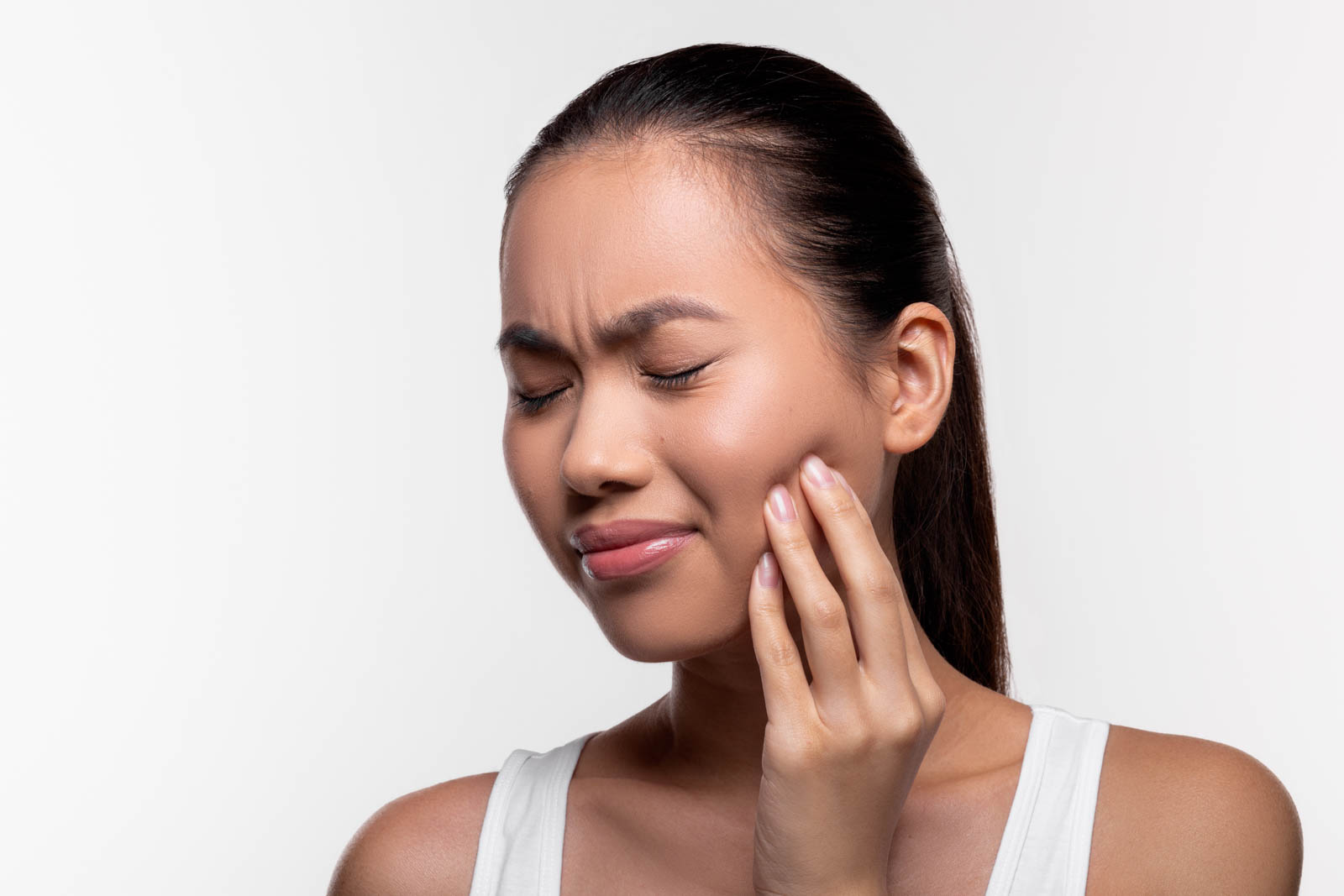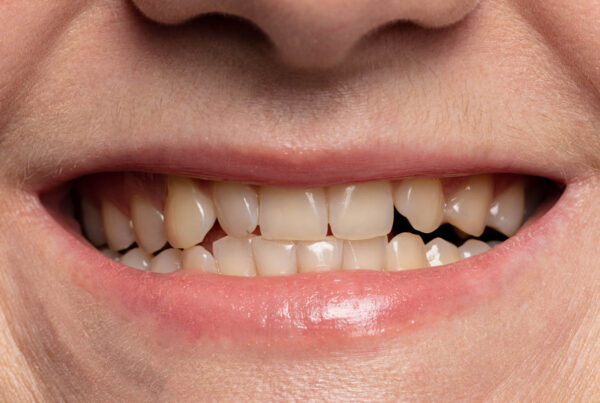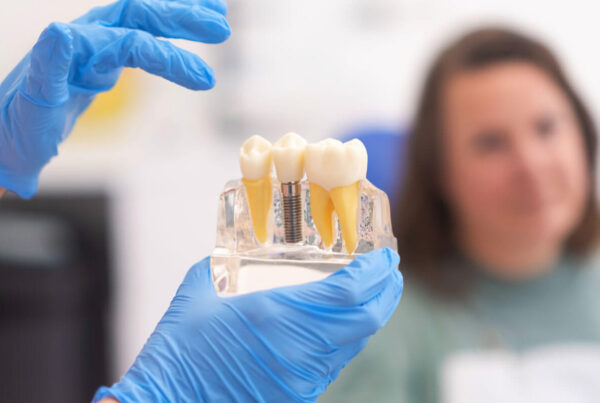No one likes to be in pain, including in the mouth.
It’s a common problem, and there could be many different causes for tooth pain. At Dentistry at 1818 Market Street, we want to help relieve the pain in your mouth. If you’re currently experiencing pain in your mouth, teeth, or gums, call our Center City Philadelphia dental office immediately to make an emergency dental appointment. We will see you as soon as we can. If you are experiencing a medical emergency and need immediate assistance, call 911 for help now.
In this dental blog post we discuss possible causes for different types of pain in the mouth.
Here’s what your toothache may be telling you:
A Sharp, Shooting Pain in Tooth
Tooth cavities, also known as tooth decay, may be the cause of sudden tooth pain. Usually, sharp, shooting pain in a tooth indicates a cavity. At this stage of tooth decay, the cavity has most likely made its way down to the tooth root (pulp chamber). The tooth’s root is filled with blood vessels and nerves that keep the tooth alive. Typically, hard enamel protects a healthy tooth against heat, cold, and other elements.
When a cavity opens a hole into the pulp chamber, it exposes the dental nerves to outside forces. So, you may feel intense discomfort or sensitivity after chewing or even inhaling cool air if you have a deeply infected tooth.
Cavities can form on your teeth without being noticed for some time. Tooth decay happens because of bacteria on your teeth that produce acid and damage your enamel. When the cavity progresses towards an infection, a sharp pain can be felt in the tooth.
Commonly, shooting pain in a tooth is isolated to the area around the cavity. So, you can simply chew on the opposite side of your mouth while waiting for your next dental appointment in center city, Philly.
Frequent Teeth Sensitivity
Primarily, frequent sensitivity indicates one of two things: thin enamel or receding gums.
Sensitivity to extreme heat or cold happens when your enamel is eroded. The enamel is on the surface of the tooth and protects the other tissues, and when the enamel is eroded, tissues that contain nerve endings are exposed, causing sensitivity to extreme heat or cold.
Eroded enamel can’t be restored. Erosion can also cause very sharp pain when biting.
Although some patients are prone to dental sensitivity due to genetically thinner tooth enamel, your enamel can also erode and become thinner due to chronic teeth grinding (bruxism) and tooth decay.
Teeth grinding and jaw clenching can lead to chronic tooth sensitivity as this erodes the enamel over time. Many people grind their teeth in stressful situations from time to time, but if done frequently enough this can become a regular habit, and bruxism can develop. People that suffer from bruxism aren’t aware that they constantly grind their teeth. Sometimes, tooth grinding can even occur only when asleep.
Additionally, gums that begin to pull away from the teeth may also cause sensitivity. When gums recede, they often expose the nerve-containing tooth roots. If extreme temperatures bother your teeth, it’s time to make an appointment at Dentistry at 1818 Market Street.
Gum disease, also known as periodontitis, is a condition where the gums start receding. Gum disease can happen because of aging or physical trauma to the mouth or teeth. When the gums recede, the teeth are left exposed. This can increase the risk of even greater gum disease and tooth infections. The gum tissue that recedes will not grow back, but treatments can help to eliminate further recession and pain.
Additionally, products for whitening teeth such as bleaching gels and whitening strips, or having your teeth professionally whitened by a dentist can put you at a higher risk of having sensitive teeth. This sensitivity is only temporary and only lasts while using the whitening products.

Constant, Throbbing Pain in Mouth
If you’ve just had dental work done at our Phila dental office, you might experience some level of discomfort as your mouth heals and adjusts. However, consistent, prolonged, and throbbing pain could mean an underlying oral health problem, such as:
- Shifting teeth
- Impacted wisdom teeth
- Periodontal disease
- Tooth decay
- Pulpitis (inflamed, infected tooth pulp)
- Cysts and abscesses
Living with this type of pain, swelling, and infection can quickly become unbearable. When pain doesn’t go away on its own, it can make concentrating, eating, and sleeping more challenging. Our Philadelphia dentists can help address this issue through various methods, so contact your Market Street dentist before this problem gets worse.
Gum infection, or gingivitis, is the first stage of periodontal disease. Some people have gingivitis without even knowing it. Some symptoms include gum sensitivity and bleeding gums. Gum infection should be treated as soon as possible, to avoid the further progression of gum disease.
Sudden Toothache
The most likely things that cause sudden toothache are infected or cracked teeth, or the development of tooth sensitivity along with another problem.
The good thing about sudden tooth pain is that most causes are easily treatable by our Center City dentists. Our dentists in Philadelphia will also help you with preventing similar pain in the future.
If you’re experiencing any type of mouth or oral pain, contact Dentistry at 1818 Market Street as soon as possible. The sooner you find out what the problem is, the better the outcome for your oral health.




